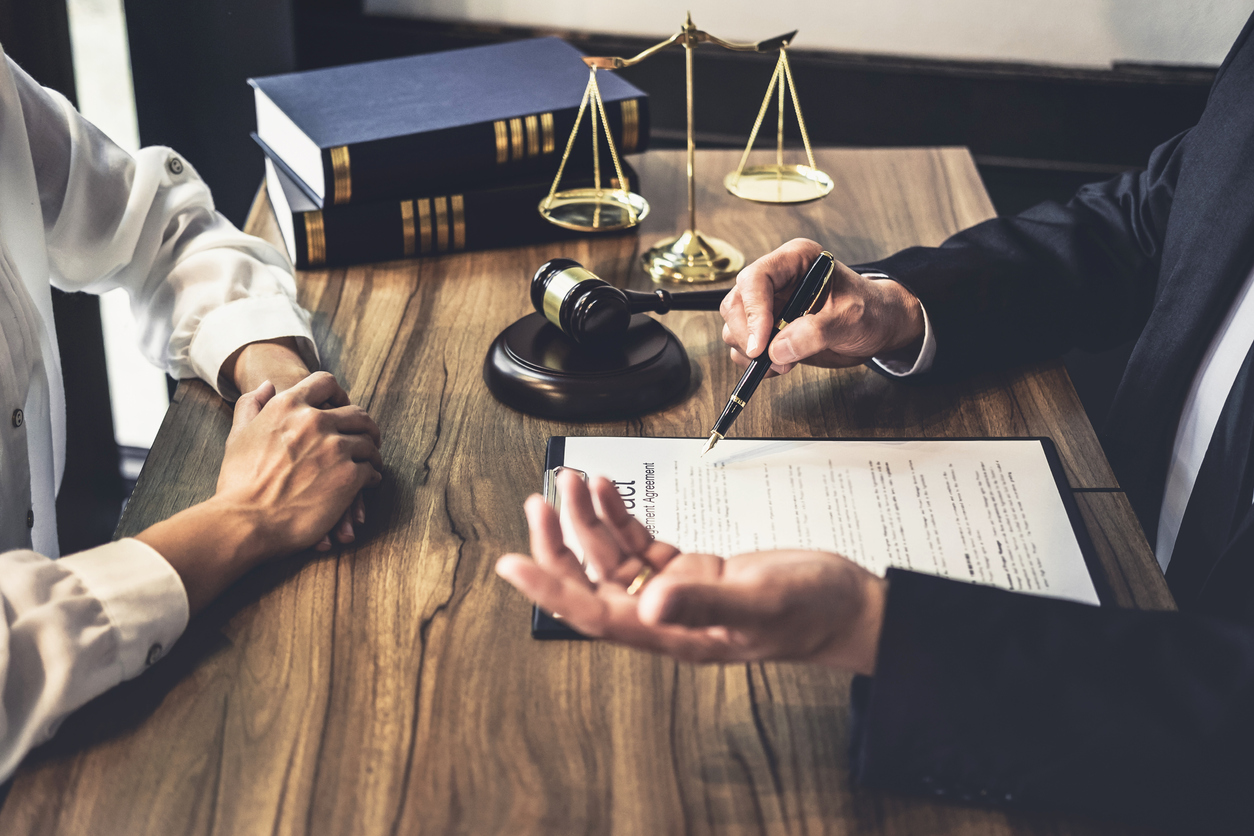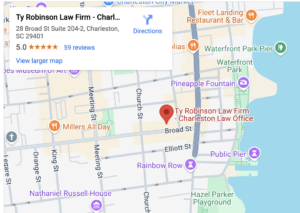Ty Robinson | September 23, 2025 | Personal Injury

Breaking down attorney-client privilege is essential for anyone involved in a legal matter. Whether you’re filing a personal injury claim, defending against criminal charges, or simply seeking legal advice in Charleston, understanding what it means and how it can affect your case is essential.
Attorney-client privilege is one of the strongest protections you have, but it also has boundaries. If you don’t know how to use it correctly, you could accidentally waive it and weaken your position.
What Does Attorney-Client Privilege Actually Protect?
Attorney-client privilege protects certain communications between a client and their lawyer.
Specifically, it covers:
- Private conversations or messages intended to obtain legal advice
- Information exchanged during the course of legal representation
- Discussions about facts, strategy, or next steps in a case
This privilege applies whether you’re speaking in person, on the phone, via email, or through a secure online portal.
It gives you the freedom to be completely honest with your attorney, which helps them give you accurate, tailored legal advice.
When Does the Privilege Begin?
One of the most important facts about attorney-client privilege is that it begins even before you officially hire a lawyer. Your conversation is protected as long as you’re seeking legal advice in a confidential setting.
For example:
- A consultation with an attorney you’re considering hiring is privileged
- Emails or messages to that attorney explaining your situation are protected
- You don’t need to pay or sign a contract for the protection to apply
This encourages people to speak openly when seeking help, even if they’re still deciding who to hire.
What Are the Limits of Attorney-Client Privilege?
Although attorney-client privilege is powerful, it doesn’t cover everything.
Communication must meet certain criteria to qualify:
- It must be between the client and the attorney (or someone working under the attorney’s direction)
- It must be for the purpose of obtaining legal advice or representation
- It must be intended to be private
You may accidentally waive the privilege if you share legal advice with someone else, like a friend or family member. Also, casual conversation or business advice (even if it’s with your lawyer) is usually not covered unless it’s tied to legal advice.
Common Mistakes That Can Waive the Privilege
People often lose attorney-client privilege without realizing it.
Here are a few ways that can happen:
- Forwarding legal emails to non-lawyers
- Discussing your case with coworkers or friends
- Using a shared or work computer to communicate with your lawyer
- Posting about your case on social media
Once privilege is waived, the other side can subpoena or introduce the information in court. That’s why it’s crucial to protect sensitive legal conversations carefully.
Attorney-Client Privilege vs. Confidentiality
Privilege and confidentiality sound similar, but they are different legal concepts:
- Attorney-client privilege protects certain communications from being used in court
- Confidentiality is a broader ethical obligation requiring lawyers to keep all client-related information private
For example, if your attorney learns something about your case that isn’t technically privileged (like a fact they found in public records), they still can’t share it without your permission.
Exceptions to the Attorney-Client Privilege Rule
Although attorney-client privilege is a legal right, there are a few exceptions where the law allows disclosure:
- Crime-fraud exception: If you ask your attorney to help commit a future crime or fraud, that conversation is not protected
- Legal disputes with your lawyer: If you sue your lawyer for malpractice, they may reveal privileged information in their defense
- Preventing future harm: In rare cases, courts may allow attorneys to reveal confidential information to prevent someone from being seriously injured or killed
These exceptions are narrow, but important to keep in mind when speaking to a lawyer.
Why Privilege Matters in a Legal Case
Attorney-client privilege helps you build a stronger case.
When you can speak freely, your lawyer can:
- Evaluate all the facts accurately
- Spot weaknesses or risks early
- Build a strategy that fits your situation
- Avoid surprises during discovery or trial
If you withhold information because you’re worried it will be used against you, your lawyer may be caught off guard, which can hurt your chances of a successful outcome.
Can Attorney-Client Privilege Impact Settlement or Trial?
Yes. Your private conversations may include topics like how much you’re willing to settle for, concerns about your credibility as a witness, or specific weaknesses in your case. This information stays protected by privilege.
If you accidentally waive that protection, opposing counsel could access that information and use it to negotiate from a position of strength. This could lower your settlement or complicate your trial.
How to Protect Privileged Communications
To keep your legal conversations protected, follow these tips:
- Only discuss your case directly with your lawyer
- Avoid CC’ing or forwarding legal emails to anyone else
- Use secure channels (not work emails or shared devices)
- Don’t leave voicemails with sensitive information if someone else might hear them
- Always ask your attorney if you’re unsure whether something is privileged
Even one careless message or conversation can compromise your legal position.
Contact the Charleston Personal Injury Lawyer at Ty Robinson Law Firm for Help Today
Breaking down attorney-client privilege means understanding both the protections it gives you and the risks of losing it. If you stay within the rules, you can have honest, productive conversations that help your case. Treating it casually may put your own legal strategy at risk.
Whether you’re involved in a lawsuit or just seeking legal advice, knowing how to use this privilege properly is key to protecting yourself.
If you were injured in an accident in Charleston, South Carolina, and need legal help, contact our Charleston personal injury lawyer at Ty Robinson Personal Injury & Car Accident Law Firm to schedule a free case review today.
Ty Robinson Personal Injury & Car Accident Law Firm
28 Broad St Suite 204-2
Charleston, SC 29401
(843) 278-2222



